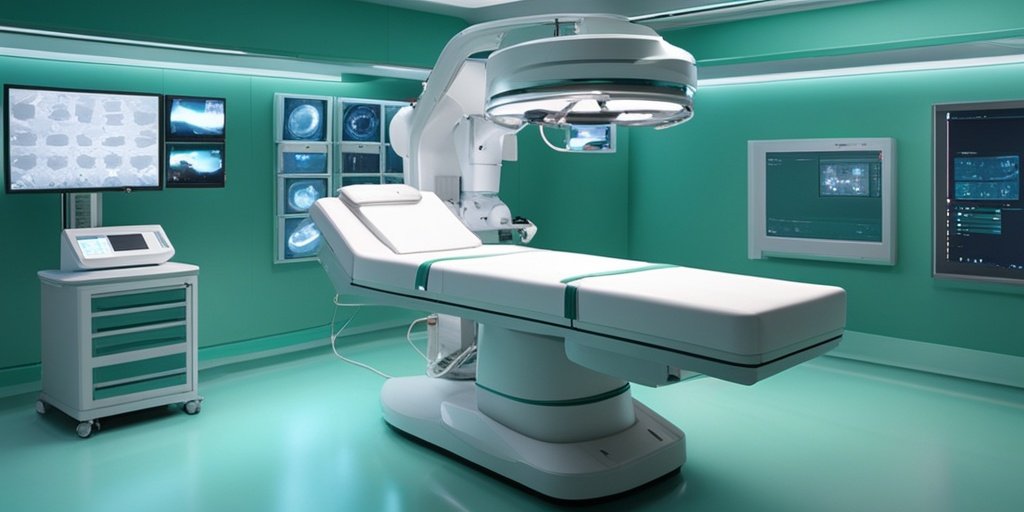⚡ Quick Summary
The integration of artificial intelligence (AI) and robotics in surgical practices is transforming the landscape of healthcare by enhancing precision, improving patient outcomes, and addressing critical challenges in surgical accuracy. This review highlights significant advancements and the future potential of these technologies across various surgical specialties.
🔍 Key Details
- 📊 Focus Areas: Urology, plastic surgery, ophthalmology, pediatric surgery
- ⚙️ Technologies Evaluated: AI-enhanced imaging, real-time data analysis, automated robotic instruments
- 📅 Study Year: 2024
- 📈 Methodology: Systematic review following PRISMA guidelines
🔑 Key Takeaways
- 🤖 AI and robotics are enhancing surgical precision and efficiency.
- 🏥 Significant improvements in decision-making and reduction of surgical errors have been observed.
- 🌍 Global healthcare systems are increasingly adopting AI-driven technologies.
- 💡 Breakthroughs include advancements in minimally invasive techniques.
- ⚖️ Ethical concerns and disparities in access to these technologies remain critical challenges.
- 🔍 Future research should focus on integrating AI with emerging technologies like augmented reality.
- 📉 Limitations include reliance on recent studies, necessitating long-term evaluations.
- 📜 Implications for policymakers and healthcare institutions to promote equitable access.

📚 Background
The advent of AI and robotics in surgery marks a significant shift in how surgical procedures are performed. These technologies aim to tackle longstanding challenges such as surgical accuracy and the need for minimally invasive techniques. As healthcare systems worldwide embrace these innovations, it is essential to understand their implications for patient care and the ethical considerations that accompany their use.
🗒️ Study
This systematic review, conducted by Wah JNK, synthesizes findings from various studies published in 2024, focusing on the integration of AI and robotics in surgical practices. The review adheres to PRISMA guidelines for study selection and data synthesis, ensuring a comprehensive evaluation of surgical specialties and outcomes related to accuracy, recovery, and complications.
📈 Results
The review indicates substantial advancements in AI-driven surgical systems, which have led to improved decision-making processes, reduced surgical errors, and the facilitation of personalized treatment strategies. Noteworthy innovations include AI-enhanced imaging and automated robotic instruments, which collectively contribute to enhanced procedural efficiency and patient safety.
🌍 Impact and Implications
The findings from this review underscore the transformative potential of AI and robotics in surgery. By advancing minimally invasive techniques and expanding surgical capabilities, these technologies can significantly improve patient outcomes. However, the challenges of cost, ethical considerations, and the need for rigorous training protocols must be addressed to ensure equitable access to these innovations across diverse healthcare settings.
🔮 Conclusion
The integration of AI and robotics in surgical practices represents a groundbreaking advancement in healthcare. As we continue to explore the potential of these technologies, it is crucial to foster interdisciplinary collaboration and address socio-ethical dimensions to fully realize their benefits. The future of surgery looks promising, and ongoing research will be vital in shaping this evolving landscape.
💬 Your comments
What are your thoughts on the integration of AI and robotics in surgery? We invite you to share your insights and engage in a discussion! 💬 Leave your comments below or connect with us on social media:
Revolutionizing surgery: AI and robotics for precision, risk reduction, and innovation.
Abstract
Artificial intelligence and robotics are revolutionizing surgical practices by enhancing precision, efficiency, and patient outcomes. With global healthcare systems increasingly adopting AI-driven technologies, the integration of robotics in surgery addresses critical challenges such as surgical accuracy, minimally invasive techniques, and healthcare accessibility. However, disparities in access and ethical concerns regarding automation persist globally, necessitating a balanced discourse on these advancements. The primary objective of the review is to explore the intersection of AI and robotic technologies in surgical practices, highlighting key innovations, their impact on precision medicine, and future trajectories. The novelty of the review lies in synthesizing findings across diverse surgical specialties, including urology, plastic surgery, ophthalmology, and pediatric surgery, to provide a comprehensive understanding of AI’s transformative role. The systematic review evaluates the integration of AI and robotics in surgery, synthesizing studies published in 2024. It follows PRISMA guidelines for study selection, data extraction, and synthesis. The review assesses surgical specialties, AI technologies, and outcomes like accuracy, recovery, and complications, ensuring methodological rigor and transparency. The findings indicate substantial advancements in AI-driven surgical systems, improving decision-making, reducing surgical errors, and facilitating personalized treatment strategies. Notable breakthroughs include AI-enhanced imaging, real-time data analysis, and automated robotic instruments, which collectively improve procedural efficiency and patient safety. The discussion emphasizes the critical implications of these innovations, particularly in advancing minimally invasive techniques and expanding surgical capabilities in complex procedures. However, challenges such as cost, ethical considerations, and the need for rigorous training protocols are highlighted as barriers to widespread adoption. The review underscores the implications for policymakers, healthcare institutions, and technology developers to address these barriers and promote equitable access to AI-driven surgical solutions. Limitations include the reliance on recent studies, necessitating long-term evaluations of clinical outcomes. Future research should focus on integrating AI with emerging technologies like augmented reality, fostering interdisciplinary collaboration, and addressing socio-ethical dimensions to fully realize the potential of AI in surgical advancements.
Author: [‘Wah JNK’]
Journal: J Robot Surg
Citation: Wah JNK. Revolutionizing surgery: AI and robotics for precision, risk reduction, and innovation. Revolutionizing surgery: AI and robotics for precision, risk reduction, and innovation. 2025; 19:47. doi: 10.1007/s11701-024-02205-0